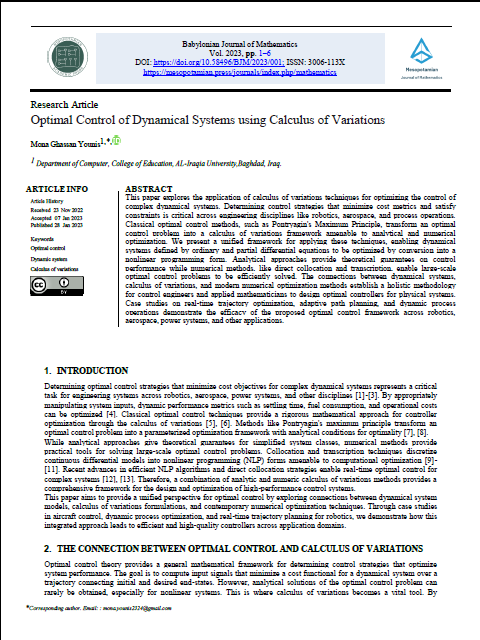Optimal Control of Dynamical Systems using Calculus of Variations
Main Article Content
Abstract
This paper explores the application of calculus of variations techniques for optimizing the control of complex dynamical systems. Determining control strategies that minimize cost metrics and satisfy constraints is critical across engineering disciplines like robotics, aerospace, and process operations. Classical optimal control methods, such as Pontryagin's Maximum Principle, transform an optimal control problem into a calculus of variations framework amenable to analytical and numerical optimization. We present a unified framework for applying these techniques, enabling dynamical systems defined by ordinary and partial differential equations to be optimized by conversion into a nonlinear programming form. Analytical approaches provide theoretical guarantees on control performance while numerical methods, like direct collocation and transcription, enable large-scale optimal control problems to be efficiently solved. The connections between dynamical systems, calculus of variations, and modern numerical optimization methods establish a holistic methodology for control engineers and applied mathematicians to design optimal controllers for physical systems. Case studies on real-time trajectory optimization, adaptive path planning, and dynamic process operations demonstrate the efficacy of the proposed optimal control framework across robotics, aerospace, power systems, and other applications.
